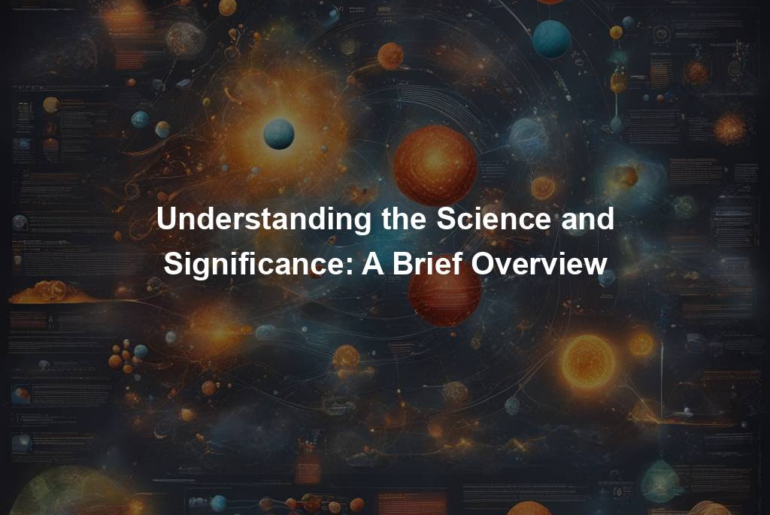Science is an ever-evolving field that seeks to understand the world and the universe around us. It is a systematic approach to acquiring knowledge through observation, experimentation, and analysis. The significance of science lies in its ability to provide explanations and insights into the workings of nature, unlocking the mysteries that surround us.
The Scientific Method
At the core of science lies the scientific method, a logical and systematic process that allows scientists to investigate and understand phenomena. It begins with observations and the formulation of a testable hypothesis. Hypotheses are then rigorously tested through experiments and data collection. This data is analyzed, and conclusions are drawn, leading to new insights or the modification of existing theories.
The scientific method provides a structured approach that ensures objectivity, repeatability, and verifiability of scientific findings. It is crucial in distinguishing between valuable scientific knowledge and baseless claims or pseudoscience, which lack the necessary empirical evidence.
Branches of Science
The vast field of science is divided into several branches, each specializing in specific areas of study.
1. Natural Sciences: This branch encompasses the study of the physical universe, including physics, chemistry, astronomy, geology, and biology. Natural sciences explore the fundamental laws and principles that govern the natural world.
2. Social Sciences: These sciences focus on understanding human behavior, societies, and cultures. Psychology, sociology, anthropology, and political science are examples of social sciences.
3. Formal Sciences: Formal sciences, such as mathematics and logic, deal with abstract constructs. They provide the foundational framework for other scientific disciplines, enabling precise modeling and prediction.
Importance of Science
Science plays a vital role in shaping our understanding of the world and driving technological advancements. It empowers us to solve complex problems, make informed decisions, and improve our quality of life.
1. Advancing Knowledge: Science allows us to expand our knowledge and fill gaps in our understanding. Through research and experimentation, we can constantly refine and update existing theories, leading to new discoveries and breakthroughs.
2. Technological Innovation: Science and technology are inherently interconnected. Scientific discoveries often lay the groundwork for technological advancements that revolutionize various fields such as medicine, communication, transportation, and energy production.
3. Evidence-based Decision Making: Science provides a reliable foundation for decision making by offering evidence-based insights. Policies, regulations, and public health measures are often founded on scientific evidence to maximize efficiency, effectiveness, and desired outcomes.
4. Environmental Conservation: By studying the impact of human activities on the environment, science plays a crucial role in raising awareness about the importance of environmental preservation. Scientific knowledge informs sustainable practices and helps minimize the negative effects of human actions on the planet.
Conclusion
Science’s significance lies in its ability to unravel the mysteries of the natural world and improve our lives. The scientific method guides the pursuit of knowledge in a systematic and objective manner. Through its various branches, science empowers us to understand the universe, society, and ourselves. With science as our ally, we can continue to explore, innovate, and make evidence-based decisions that shape a brighter future for all.

